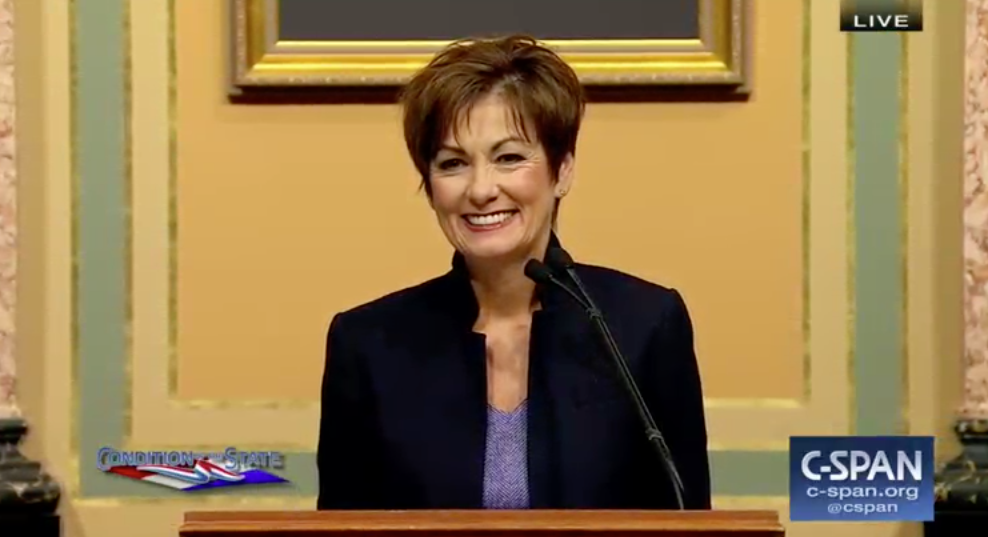November 11 first became a day to honor war veterans in 1919, one year after the First World War ended. Congress officially designated “Armistice Day” a national holiday in 1926 and changed its name to Veterans Day in 1954. Many Americans will make a special effort today to thank the veterans they know. In that spirit, Bleeding Heartland acknowledges some of the Iowans in public life who have served in the armed forces.
Iowa’s Congressional delegation includes only one person who has served in the military: Senator Joni Ernst. The number of veterans in Congress has declined dramatically over the last 40 years. In 1971, “when member military service was at its peak, veterans made up 72 percent of members in the House and 78 percent in the Senate.” But in the current Congress, just 81 U.S. House representatives and 13 U.S. senators have served in the military. I enclose below more statistics from Rachel Wellford’s report for NPR.
Governor Terry Branstad is the only veteran among Iowa’s current statewide elected officials.
Of the 50 Iowa Senate members, seven are veterans: Democrats Jeff Danielson, Tom Courtney, Dick Dearden, Bill Dotzler, and Wally Horn, and Republicans Bill Anderson and Jason Schultz.
Of the 100 Iowa House members, nineteen are veterans: Republicans John Kooiker, Stan Gustafson, John Landon, Dave Maxwell, Kraig Paulsen, Sandy Salmon, Quentin Stanerson, Guy Vander Linden, Matt Windschitl, Dave Heaton, Darrel Branhagen, Ken Rizer, Zach Nunn, John Wills, and Steve Holt, and Democrats Dennis Cohoon, Jerry Kearns, Todd Prichard, and Brian Meyer.
The population of veterans faces some special challenges, including higher rates of mental health problems such as post-traumatic stress disorder (PTSD). An estimated 22 U.S. military veterans die by suicide every day, which means suicide “has caused more American casualties than wars in Iraq and Afghanistan.” The Military Suicide Research Consortium provides information on the problem and resources for those needing help, in addition to white papers summarizing current research on factors that contribute to suicides. For instance, sexual assault in adulthood or childhood sexual abuse both increase the risk of suicidal thoughts and attempts. Also, veterans who know someone who died by suicide “reported more than twice the frequency of suicidal ideation.” I was surprised to read in this paper that major public holidays are not associated with higher rates of suicide. On the contrary, “holidays may act as more of a protective factor” against suicide, possibly because of greater “social integration during holiday periods.”
Last month the Iowa Department of Public Health released the Iowa Plan for Suicide Prevention 2015-2018, which “seeks to reduce the annual number of deaths by suicide in Iowa by 10 percent by the year 2018 – a reduction of 41 from the 406 three-year average from 2012-2014 – with an ultimate goal of zero deaths by suicide.” The full report (which does not focus on veterans) is available here (pdf). Iowans with suicidal thoughts or who are concerned a loved one may be considering suicide can call the Suicide Prevention Lifeline at (800) 273-TALK or Your Life Iowa at (855)-581-8111. For online assistance: Suicide Prevention Lifeline or Your Life Iowa.
Continue Reading...




